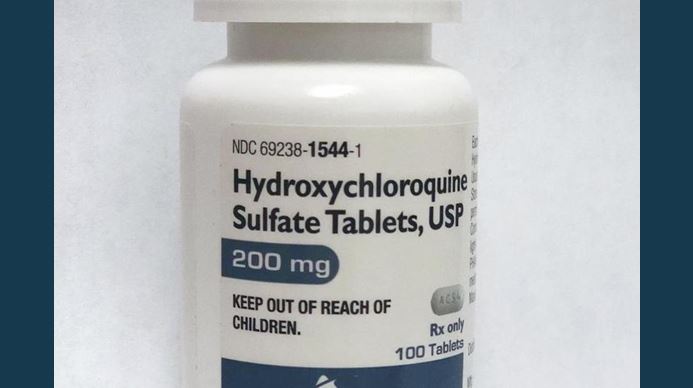SALT LAKE CITY, Utah, Nov. 11, 2020 (Gephardt Daily) — A Utah study shows that anti-malarial drug hydroxychloroquine provided no benefit to COVID-19 patients when compared to azithromycin, an antibiotic used to treat bacterial infections.
The study was carried out by researchers from the Intermountain Healthcare and University of Utah Health, according to a news release.
The trial, which was run in parallel with a National Institutes of Health trial comparing hydroxychloroquine to a placebo, was stopped early given overwhelming evidence of its ineffectiveness in treating the disease, the news release said.
“We saw enormous early interest in hydroxychloroquine, but now we can definitively say that it doesn’t help COVID-19 patients,” said Samuel M. Brown, MD, MS, principal investigator of the trial and director of the Center for Humanizing Critical Care at Intermountain Healthcare.
Brown, who specializes in critical care medicine at Intermountain, is also co-chair of the ORCHID trial, a National Institutes of Health nationwide study that also found no benefit to treating COVID-19 patients with hydroxychloroquine.
In the study, researchers identified 85 patients with COVID-19 at 13 Intermountain Healthcare hospitals and University of Utah Hospital over an 11-week span. Patients were randomized into two groups: one group was given a five-day treatment of hydroxychloroquine; the other was given a five-day treatment of azithromycin.
Researchers found that outcomes for COVID-19 patients may have been worse in those given hydroxychloroquine than those treated with azithromycin, the news release said.
When the ORCHID trial found no benefit or harm of hydroxychloroquine in COVID-19 patients, Intermountain and University of Utah Health shut down their trial short of their original goal of enrolling 300 patients.
“When we interpreted our findings in the context of the national trial, we felt like our study had done what it needed to do,” Brown said. “It had protected our patients from plan to distribute hydroxychloroquine without informed consent or careful safety protocols. And it contributed to our knowledge about what works and what doesn’t. When we acknowledge that the trials with limited safety protocols suggested that hydroxychloroquine was harmful and the trials that used careful safety protocols suggested neither harm nor benefit, it seems likely to us that providing this clinical trial to Utahans on balance protected their health.”
However, he said, there’s enough suggestion of a positive benefit of giving patients azithromycin that it merits further study, which is being done in the RECOVERY trial currently being run in the United Kingdom. He advises that it’s too early to start widespread use of azithromycin outside clinical trials, however.
Brown said that while the HAHPS trial didn’t prove any benefits from hydroxychloroquine, he said it showed that researchers can be “creative” in conducting research – especially during a pandemic.
“We managed to pull together both Intermountain and University of Utah Health to create a consortium of research and non-research hospitals to run a trial on a medication we needed to know more about, and we did so with speed and rigor,” Brown said.
Deciding to compare hydroxychloroquine to azithromycin instead of a placebo is an example of that flexible rigor.
“You can do a lot of really important but still scientific work if you can be flexible about how you do it to determine the best course of treatment for patients,” he said.
Results of the study were published Monday in the Annals of the American Thoracic Society here.






